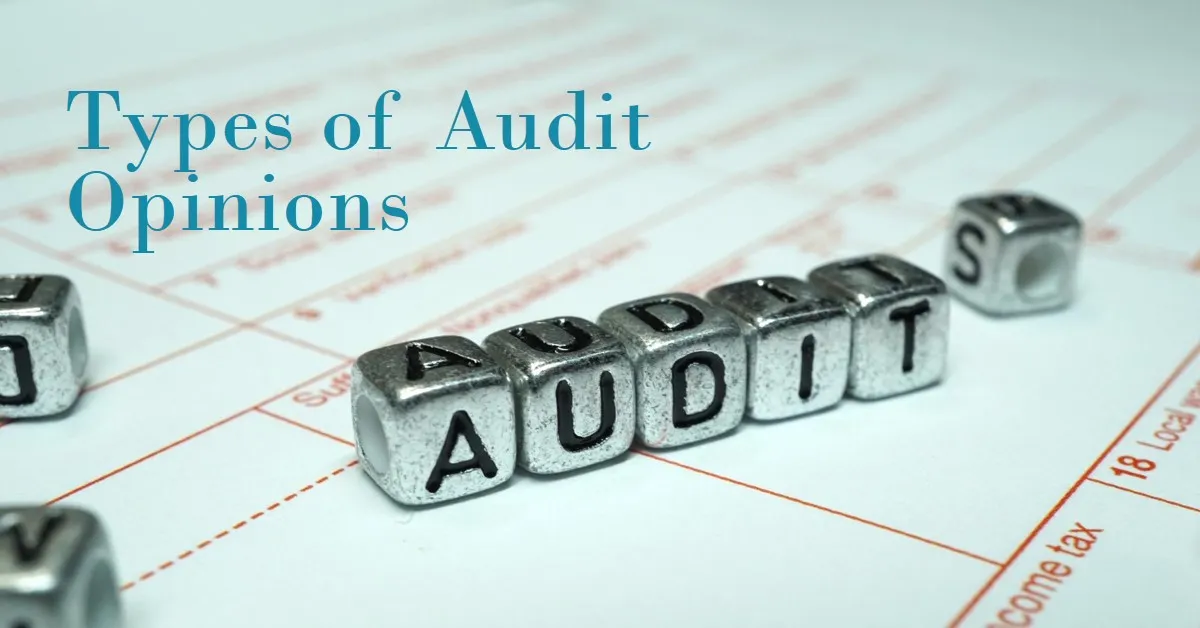In the world of finance, over a thousand changes to auditor’s reports have made things complex. Audit opinions illuminate financial statement veracity, playing a pivotal role in building corporate trust. Auditors shoulder significant responsibility, clarifying intricate issues through their opinions. These assessments do more than summarize; they verify financial audit compliance with regulations, offering crucial insights for stakeholders and the broader financial market.
Key Takeaways
- The many changes in auditor’s reports reflect the ever-changing world of financial reporting and compliance.
- Audit opinions help confirm if financial reports accurately reflect real transactions, following accepted accounting rules.
- An auditor’s job goes further than just looking at numbers. They offer a complete and unbiased check.
- Things like auditor responsibility and the opinion part of reports are key to trusting financial information.
- Knowing the different audit opinions helps stakeholders understand a company’s financial health.
- Updates in auditing methods and report rules keep auditing relevant and dependable as finance changes.
- The way audit opinions are formed shows the careful and rule-following nature of financial audits.
4 Types of Audit Opinions
Audit opinions reflect the reliability of financial reports. These opinions stem from thorough examinations of audit evidence. Let’s explore the four main types:
Unqualified Opinion: A Beacon of Compliance
An unqualified opinion signifies full compliance with Generally Accepted Accounting Principles (GAAP). Auditors issue this “clean bill of health” when:
- Financial statements contain no material misstatements
- Company’s finances are presented accurately and fairly
Qualified Opinion: Identifying Specific Financial Exceptions
A qualified opinion indicates partial compliance with GAAP. Auditors issue this opinion when:
- Specific exceptions exist in financial reporting
- Issues are significant but not pervasive
Financial disclosures remain mostly accurate, despite these exceptions.
Adverse Opinion: The Red Flag of Financial Statements
An adverse opinion represents a serious concern. This opinion arises when:
- Financial reports contain material misstatements
- Company fails to adhere to GAAP
Consequences can include reputational damage and loss of trust.
Disclaimer of Opinion: Navigating the Uncertain Terrain
A disclaimer of opinion occurs when auditors lack sufficient information. This situation arises due to:
- Limited access to necessary audit evidence
- Scope limitations prevent comprehensive auditing
To summarize these audit opinions:
| Audit Opinion Type | Definition | Implication |
|---|---|---|
| Unqualified Opinion | Free from material misstatements; GAAP adhered | Entity’s financial reports are fair and compliant |
| Qualified Opinion | Specific exceptions to GAAP compliance | Financial statements are accurate, except for certain areas |
| Adverse Opinion | Pervasive material misstatements; non-GAAP compliance | Financial reports are misleading or incorrect |
| Disclaimer of Opinion | Limited or no audit evidence available | Undeterminable financial status; significant uncertainty |
Each opinion type provides unique insights into an organization’s financial health and reporting practices.
The Foundation of Audit Reports and Opinions
Audit reports serve as the primary vehicle for assessing an organization’s financial reporting integrity. These reports stem from meticulous reviews based on international auditing standards. They provide an independent evaluation summarizing compliance with standards.
Audit reports:
- Maintain auditing process integrity
- Offer in-depth insight into audit opinion significance
- Demonstrate financial information reliability
Consider the Florida Atlantic University Foundation, Inc. Their financial statements for the year ending June 30, 2022, present a fair and unbiased view of the Foundation’s financial health. This audit adhered strictly to U.S. and Government Auditing Standards, ensuring financial statements free from material misstatements.
The report’s strength lies in its clear delineation of:
- Management’s presentation of internal controls
- Financial statement preparation processes
Management bears responsibility for fair financial reporting. This aligns with auditors’ primary objective: providing stakeholders with clear, reliable financial information. The focus on implementing GASB 87, noted in the Foundation’s financial details, underscores auditors’ commitment to delivering a timely, quality audit opinion.
Supplementary information, such as Schedules of Board of Directors and Expenditures of State Financial Assistance, underwent scrutiny. While not part of the primary financial statements, these elements contribute to the broader analysis, offering a comprehensive view and clear audit opinion significance.
The independent auditor’s report builds public trust in an entity’s financial truthfulness and management. It represents a thorough examination and commitment to high auditing standards.
The Department of Defense (DoD) conducted one of the largest financial statement audits in FY18, demonstrating auditors’ capacity to handle complex, large-scale examinations. Conversely, EY’s disclaimer of opinion for DLA’s working capital fund statements in FY17 illustrates the varied outcomes audits can produce. Each result tells a unique story about an organization’s financial narrative.
In essence, the audit report:
- Validates an entity’s financial transparency
- Encompasses a broad international perspective
- Adheres to best practices
- Facilitates open dialogue between auditors and management
The final opinion not only reflects financial status but also embodies the entity’s commitment to financial reporting standards and stakeholder assurance.
The Auditor’s Approach to Assessing Financial Statements
Auditors play a crucial role in verifying a company’s financial health and building trust in its reports. They evaluate financial management practices and adhere to strict protocols when examining finances.
Key focus areas include:
- Critical Audit Matters (CAMs): These represent the most significant challenges in an audit, involving high risk or complex areas. Recent regulatory changes have enhanced CAM reporting clarity, particularly for large companies.
- Audit Certifications: These validate the auditor’s findings, confirming their truthfulness and reliability. Such certificates attest to audit quality and are vital for the auditor’s reputation.
To fully grasp the auditor’s role, consider the current regulatory landscape:
| Key Audit Elements | Implementation Date | Audited Entities Affected |
|---|---|---|
| Critical Audit Matters | June 30, 2019 | Large Accelerated Filers |
| Critical Audit Matters | Dec 15, 2020 | All Other Companies |
| Unqualified Report Essentials | Dec 15, 2017 | All Audited Entities |
Some entities, such as brokers and dealers, are exempt from CAM requirements, illustrating how auditors tailor their approaches based on the entity type.
Auditors employ various strategies to effectively assess financial statements:
- Data Access Control Evaluation: This prevents errors or misuse.
- Analytical Procedures: These help identify unusual or unexpected financial activity.
The culmination of an auditor’s work is a detailed report, known as the “Report of Independent Registered Public Accounting Firm.” This document clearly communicates their opinion on the financial statements to all stakeholders and bears the signature of the auditing firm.
Auditors must navigate complex regulatory changes. For instance:
- CAM requirements for large accelerated filers took effect for fiscal years ending on or after June 30, 2019.
- For all other applicable companies, CAM requirements became effective for fiscal years ending on or after December 15, 2020.
These timelines underscore the evolving nature of audit practices and the need for auditors to stay current with regulatory shifts.
Conclusion
Audit opinions are crucial for ensuring financial transparency and regulatory compliance. They provide stakeholders with an independent assessment of a company’s financial health. Whether positive or negative, these opinions play a vital role in building trust, guiding investment decisions, and maintaining economic stability.
FAQ
What is an audit opinion?
An audit opinion is what auditors say about a company’s financial statements. They check if the statements are true and follow standards. They also look at the company’s records and controls.
What does an unqualified audit opinion signify?
An unqualified or clean report means the auditor thinks the company’s finances are shown truly. They believe everything matches with GAAP. It’s the best kind of opinion to get.
What are some reasons an auditor might issue a qualified opinion?
A qualified opinion happens if there’s mostly truth but some issues. These issues might not follow GAAP. Or, the auditor couldn’t check everything needed. It often involves certain transactions or disclosures.
What does an adverse opinion indicate?
An adverse opinion means the statements have big mistakes. They don’t truly show the company’s finances. It shows the company didn’t follow GAAP. This tells users not to trust the financial statements.
When would an auditor issue a disclaimer of opinion?
Auditors give a disclaimer when they can’t get all the evidence they need. Or, if there are big uncertainties. This can happen if the company limits the audit. It means the auditor can’t give a full opinion.
What are the main components of an audit report?
An audit report has the auditor’s opinion and the reasons for it. It tells about key audit matters and responsibilities. It covers the audit’s scope and might share findings. It’s made to show if the financial statements are reliable.
What is the importance of international auditing standards in the audit process?
International standards are key for audit quality worldwide. They make audits reliable and consistent. Following them makes sure audits find if there are big mistakes, either from fraud or error.
How do auditors evaluate a company’s internal controls?
Auditors check if a company’s internal controls work well. They see if the controls are in place and can catch big mistakes. This helps them trust the financial reports more.
What is the significance of the auditor’s independence?
The auditor’s independence makes the audit trustworthy. Being independent means auditors are unbiased. This is vital for keeping trust in the financial reports.
What is the role of audit opinions in regulatory compliance audits?
In compliance audits, opinions show if a company follows rules. An unqualified opinion means things look good. Other opinions can point out problems or non-compliance. This helps regulators and others see if the company is following the law.
Source Links
- https://www.bcauditor.com/about-us/what-we-do/financial-audits/audit-opinions
- https://us.aicpa.org/content/dam/aicpa/research/standards/auditattest/downloadabledocuments/au-00508.pdf
- https://us.aicpa.org/content/dam/aicpa/research/standards/auditattest/downloadabledocuments/au-c-00705.pdf
- https://www.iasplus.com/en-gb/news/2022/08/frc-publishes-snapshots-of-current-practice-in-auditor-reporting
- https://fauf.fau.edu/wp-content/uploads/2023/10/2022-06-30-2021-FAU-Foundation-Audited-Financial-Statements.pdf
- https://www.dla.mil/About-DLA/News/News-Article-View/Article/1857276/audit-101/
- https://www.pw.live/exams/ca/audit-reports-and-opinions/
- https://pcaobus.org/oversight/standards/auditing-standards/details/AS3101
- https://www.in.gov/sboa/about-us/sboa-glossary-of-accounting-and-audit-terms/

